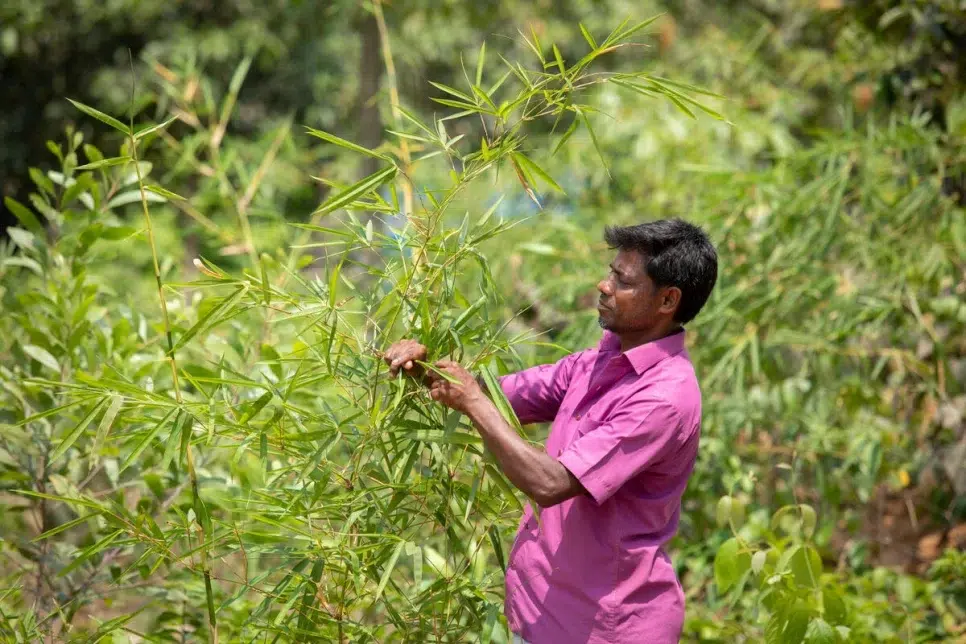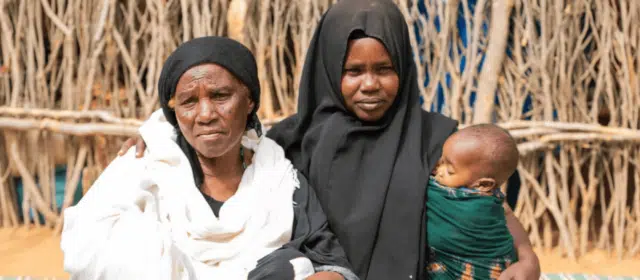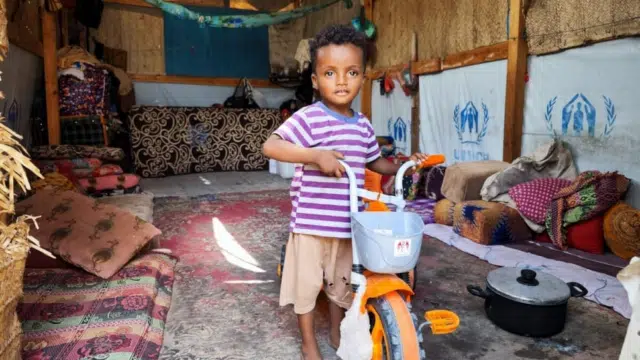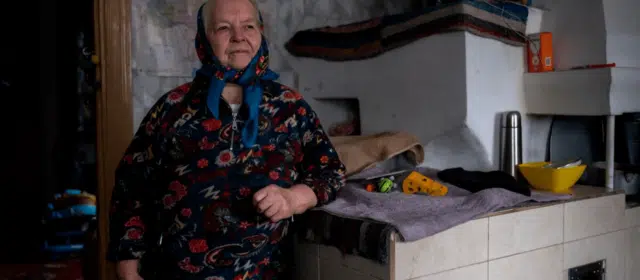
More funding is needed for skills training and livelihood projects like one that is supporting refugees and host communities to grow bamboo for building and stabilizing hillsides. © UNHCR/Kamrul Hasan
This is a summary of what was said by Johannes van der Klaauw, UNHCR Representative in Dhaka, Bangladesh – to whom quoted text may be attributed – at today’s press briefing at the Palais des Nations in Geneva.
GENEVA – UNHCR, the UN Refugee Agency, and partners are calling on the international community to redouble efforts for sustained financial support and solutions for Rohingya refugees and the Bangladeshi communities that are hosting them as the dire situation enters its sixth year.
Under the leadership of the Bangladeshi authorities, the 2023 Joint Response Plan for the Rohingya Humanitarian Crisis calls for $876 million to reach 1.47 million people. The Joint Response Plan brings together 116 partners, nearly half of them national organizations from Bangladesh.
The Plan, which was launched today, aims to help some 978,000 Rohingya refugees in Cox’s Bazar and on the island of Bhasan Char, and 495,000 Bangladeshis in neighbouring communities, with food, shelter, health care, access to drinkable water, protection services, education, as well as livelihood opportunities and skills development.
Every day, the nearly one million Rohingya women, children and men that fled from violence and persecution in Myanmar for Bangladesh wake up in a chilling fog of uncertainty about their futures. They are desperate to return to their homes in Myanmar, which are currently out of reach, and instead live in extremely overcrowded, and sometimes dangerous conditions in refugee camps, relying almost entirely on humanitarian assistance for their survival.
While the situation has become protracted, the needs of refugees remain urgent. Women and children, who make up more than 75 per cent of the targeted refugee population, face higher risks of abuse, exploitation, and gender-based violence. More than half of the refugees in the camps are under 18, their futures on hold.
Since the onset of this humanitarian crisis in 2017, the Government of Bangladesh and local communities, with aid agencies, have been quick to respond to arriving refugees in what remains the world’s largest refugee camp. However, as global displacement continues to rise, so does the risk that the needs of Rohingya refugees and surrounding host communities will be forgotten.
With decreased funding, refugees stand to face even more challenges in their daily lives in terms of proper nutrition, shelter materials, sanitation facilities and livelihood opportunities.
The lack of funds has already forced the World Food Programme to cut its lifesaving food assistance to all Rohingya living in the camps; despite concerted humanitarian efforts, 45 per cent of Rohingya families are not eating a sufficiently healthy diet and malnutrition is widespread. These ration cuts are likely to result in higher malnutrition rates, deteriorating health, school dropouts, increased incidents of child marriage, child labour and gender-based violence.
It is therefore vital to ensure continued funding and support to be able to deliver life-saving and life-sustaining assistance to the camp population while also investing in education, skills training and livelihood opportunities, allowing refugees to partially fulfil their basic needs with their own means. The relocation of some 30,000 Rohingya to the island of Bhasan Char needs to be complemented by significant investment in communal livelihood initiatives as a prerequisite for the viability and sustainability of the project.
The combination of prolonged displacement and deteriorating camp conditions has prompted an increasing number of refugees to resort to dangerous boat journeys to seek a better future. Last year alone, more than 3,500 Rohingya attempted high-risk boat journeys across the Andaman Sea and Bay of Bengal. Sadly, 10 per cent lost their lives or went missing.
The solutions to the Rohingya crisis ultimately lie within Myanmar. Many Rohingya refugees continue to express their desire to return home when conditions allow, yet currently there is no prospect for a safe, dignified and sustainable return in the immediate future. Hence, steadfast support from the international community remains crucial to support efforts by Myanmar to develop conditions conducive for return and to uphold the Rohingya right to return, while also supporting delivery of life-saving assistance and effective protection to refugees in the camps until they can return, with their rights ensured.
Given its geography, annual cycles of heavy monsoon rains and cyclones pose substantial risks to refugees in camps and host communities. Among the objectives of the Joint Response Plan, in coordination with the Government of Bangladesh, will be to strengthen disaster risk management and combat the effects of climate change through reforestation and promoting the use of renewable and cleaner energy sources. The provision of cooking gas, which has significantly eased pressure on the environment, requires significant funding.
B-ROLL: https://media.unhcr.org/Share/372v31o3e0y4nb04x2216gsjy86x2y3d
Link to photos: https://media.unhcr.org/Share/q5xv8lsd31c2u7f08pwifguln084lk43
For more information on this topic, please contact:
- In Bangladesh, Regina de la Portilla, delaport@unhcr.org, +88 01847 327 279
- In Bangkok, Babar Baloch, baloch@unhcr.org, +66 80 086 5611
- In Geneva, Matthew Saltmarsh, saltmars@unhcr.org, +41 79 967 99 36
- In Ottawa, Levon Sevunts, sevunts@unhcr.org, +1 613-286-6975





